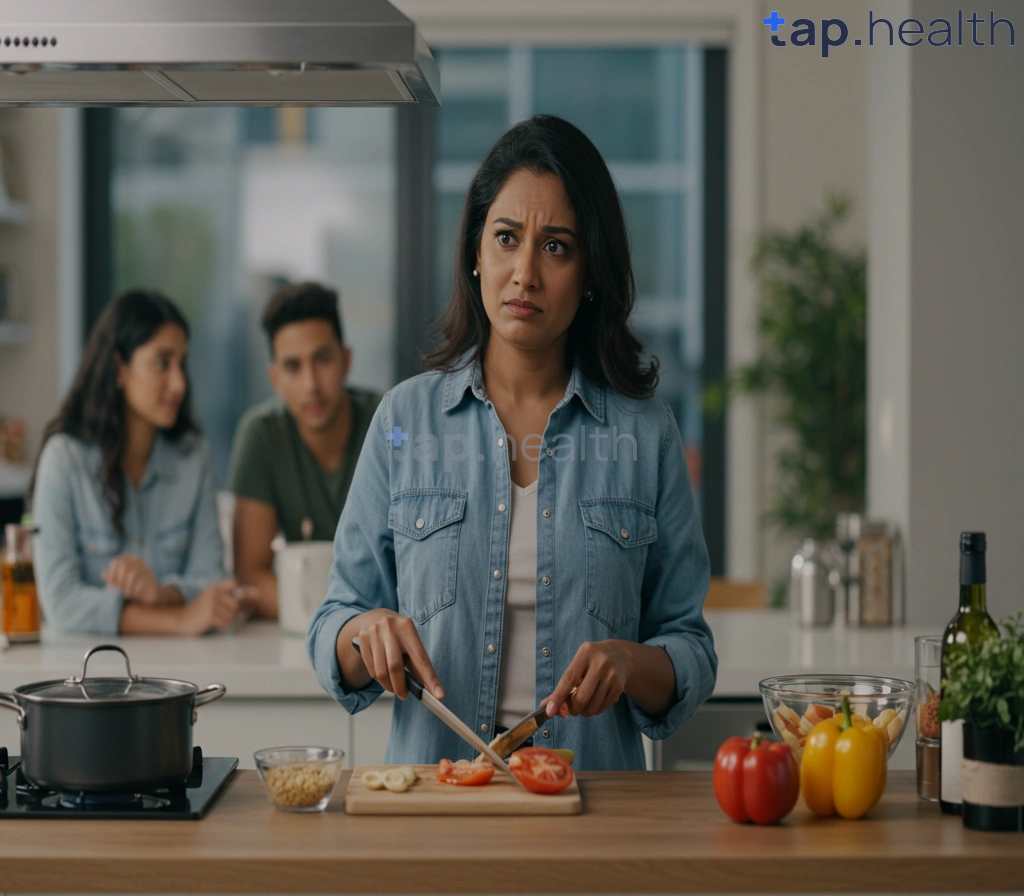Table of Contents
- Understanding Sundowning in Diabetes: A Comprehensive Guide
- Managing Late-Day Confusion: Tips for Diabetes Patients
- Sundowning and Diabetes: What Causes Evening Confusion?
- Improve Evening Well-being: Strategies for Sundowning in Diabetes
- Is Sundowning Related to Diabetes? Causes and Management
- Frequently Asked Questions
- References
Does your loved one with diabetes experience increased confusion, agitation, or disorientation as the sun sets? You’re not alone. Many individuals living with diabetes struggle with sundowning, a phenomenon characterized by a worsening of cognitive symptoms later in the day. Understanding Sundowning: Managing Late-Day Confusion in Diabetes is crucial for caregivers and individuals alike, offering strategies to navigate this challenging aspect of the disease and improve quality of life. This blog post will explore the causes, symptoms, and effective management techniques to help you better understand and cope with sundowning.
Understanding Sundowning in Diabetes: A Comprehensive Guide
Sundowning, the worsening of cognitive symptoms in the late afternoon and evening, is a significant concern for many individuals, particularly those managing chronic conditions like diabetes. While not directly caused by diabetes, the increased risk of complications associated with the disease, such as diabetic nephropathy, can exacerbate cognitive decline and contribute to sundowning. Nearly 30% of people with diabetes develop diabetic nephropathy, affecting kidney function and potentially impacting overall brain health. This highlights the importance of proactive management.
Recognizing the Signs of Sundowning
In tropical and Indian climates, the heat and humidity can further intensify the symptoms of sundowning. Individuals may exhibit increased confusion, agitation, anxiety, or even aggression as the day progresses. They might become disoriented, have difficulty remembering things, or experience changes in their sleep patterns. These symptoms can significantly impact the quality of life for both the individual and their caregivers.
Managing Sundowning in Diabetes
Effective management requires a multi-pronged approach. Maintaining consistent blood sugar levels is crucial, as fluctuating glucose can directly impact brain function. Regular exercise, a balanced diet rich in fruits and vegetables, and adequate hydration are essential. Creating a calm and predictable environment in the home can also help reduce the severity of symptoms. Consider strategies like reducing stimulation in the late afternoon and evening, engaging in relaxing activities, and ensuring sufficient sleep. As you age, managing diabetes becomes even more critical, and understanding the challenges involved is crucial. For more information on this, you might find our guide on Managing Diabetes as You Age: Challenges and Solutions helpful.
Seeking Support and Further Information
In India and other tropical regions, access to specialized healthcare professionals experienced in managing diabetes and its complications is crucial. Don’t hesitate to consult your doctor or a diabetes specialist to discuss your concerns and develop a personalized management plan. Early intervention and ongoing support are essential to improving the quality of life for individuals experiencing sundowning alongside their diabetes. Proactive management can significantly mitigate the impact of this challenging condition. Understanding the connection between diabetes and other health issues is also important. For example, learn more about the potential link between diabetes and jaundice by reading our article: Can Diabetes Cause Jaundice? Understanding the Link and Prevention.
Managing Late-Day Confusion: Tips for Diabetes Patients
Late-day confusion, often called “sundowning,” can significantly impact the lives of individuals with diabetes, particularly in hot and humid climates common across India and other tropical countries. This phenomenon, characterized by increased confusion and disorientation in the late afternoon and evening, can be exacerbated by fluctuating blood sugar levels. Remember, blood glucose levels less than 140 mg/dL are considered normal, while levels between 140–199 mg/dL suggest prediabetes, and 200 mg/dL or higher indicates diabetes. Managing blood sugar effectively is crucial to mitigating sundowning.
Understanding the Connection
Several factors contribute to sundowning in diabetes patients. Dehydration, common in tropical regions, can lead to blood sugar fluctuations and cognitive impairment. The heat itself can increase stress on the body, further impacting blood sugar control. Furthermore, changes in medication absorption rates, sleep disruption due to the heat, and altered meal timings can all contribute to this late-day confusion. Regular blood glucose monitoring is essential, especially during the late afternoon and evening, to identify patterns and proactively address potential issues. This is especially important to avoid How to Prevent Long-Term Complications of Diabetes: Easy Tips.
Practical Tips for Managing Sundowning
* Stay Hydrated: Drink plenty of water throughout the day, particularly in the hotter parts of the day. Consider including hydrating fluids like coconut water, popular in many Indian and tropical cultures.
* Consistent Meal Timing: Maintain regular meal times to help stabilize blood sugar levels. Avoid skipping meals or having large meals late in the day. Avoiding common mistakes is also key; check out our blog on 5 Common Mistakes People Make in Managing Diabetes.
* Light Exercise: Regular, light physical activity can improve insulin sensitivity and help manage blood sugar levels. However, avoid strenuous activity during the hottest parts of the day.
* Consult Your Doctor: Regular check-ups with your doctor are vital for managing diabetes and addressing any concerns about sundowning. Discuss your symptoms and explore potential adjustments to your medication or treatment plan.
Taking these steps can significantly improve the quality of life for individuals with diabetes experiencing sundowning, particularly in the Indian and tropical contexts. Consult a healthcare professional for personalized advice.
Sundowning and Diabetes: What Causes Evening Confusion?
Experiencing increased confusion and disorientation towards the evening is a phenomenon known as sundowning. While it can affect anyone, individuals with diabetes may be at a higher risk. This heightened vulnerability is linked to several factors, particularly the significant impact diabetes can have on sleep. Research indicates a 70% increased risk of sleep apnea and other sleep disorders in people with diabetes. These sleep disturbances can disrupt the body’s natural circadian rhythm, leading to cognitive impairment and sundowning symptoms. The fluctuating blood sugar levels characteristic of diabetes further exacerbate the issue, causing confusion, disorientation, and even agitation in the late afternoon and evening. This connection between diabetes and sleep problems is further explored in our article, The Connection Between Diabetes and Sleep Apnea.
Understanding the Connection
The hormonal imbalances associated with poorly managed diabetes can also contribute to sundowning. In tropical and Indian climates, where higher temperatures and humidity can already disrupt sleep patterns, the added stress of managing diabetes can worsen the situation. Furthermore, the medications used to treat diabetes may have side effects that contribute to sleep disturbances and cognitive changes, leading to increased instances of evening confusion.
Managing Sundowning in Diabetes
Managing blood sugar levels consistently throughout the day is crucial in mitigating sundowning. Regular check-ups and close monitoring of blood glucose levels, especially in the late afternoon and evening, are vital. Prioritizing a regular sleep schedule, creating a calming bedtime routine, and ensuring a comfortable sleep environment are also critical. In India and other tropical regions, addressing factors like temperature and humidity in the bedroom is essential for promoting better sleep hygiene. Consult your doctor to discuss any concerns and explore strategies to manage both your diabetes and sundowning symptoms effectively. They may recommend adjustments to your medication or suggest strategies to help you regulate your blood sugar levels. Open communication with your healthcare provider is key to managing this challenging condition. If you’re experiencing excessive sleepiness after meals, it’s worth considering whether it could be related to your diabetes. Learn more in our article, Is Feeling Sleepy After Eating a Sign of Diabetes?
Improve Evening Well-being: Strategies for Sundowning in Diabetes
Understanding Sundowning in the Indian and Tropical Context
Sundowning, the worsening of cognitive symptoms in the late afternoon and evening, can significantly impact the quality of life for individuals with diabetes, particularly in warmer climates like those prevalent across India and other tropical countries. While the exact cause isn’t fully understood, factors such as fluctuating blood sugar levels, dehydration (common in hot climates), and changes in sleep patterns can exacerbate sundowning symptoms. Considering that 39% of people with diabetes are aged 65+, a demographic more susceptible to cognitive decline, understanding and managing this condition is crucial.
Practical Strategies for Managing Sundowning
Maintaining stable blood sugar levels throughout the day is paramount. Regular blood glucose monitoring, especially in the late afternoon, and adhering to a prescribed medication and diet plan are essential. In hot climates, adequate hydration is crucial to prevent dehydration, a common trigger for sundowning. Encourage increased fluid intake, particularly water, throughout the day, especially during peak heat hours.
Creating a calming evening routine can significantly help. This might include a warm bath, gentle yoga or meditation, listening to soothing music, or spending time in a cool, well-ventilated space. Reducing screen time before bed and ensuring sufficient sleep are also vital. For more information on the importance of sleep, check out our blog on The Importance of Quality Sleep in Managing Diabetes. Family support is key, with caregivers playing a critical role in creating a safe and predictable environment. Remember, early identification and proactive management are key to improving the well-being of individuals experiencing sundowning, particularly in the context of the high prevalence of diabetes among the 20-64 age group in India and across tropical regions.
Seeking Support in India and Tropical Countries
If you or a loved one is struggling with sundowning alongside diabetes, don’t hesitate to seek professional help. Consult your doctor or a diabetes specialist for personalized advice and management strategies tailored to the specific challenges of living in a tropical climate. Many hospitals and clinics in India and other tropical countries offer specialized care for diabetes and related complications. Early intervention is key to improving the quality of life for those affected. Remember that managing diabetes often involves lifestyle choices, and understanding how to incorporate things like alcohol into your routine can be helpful. For tips on this, see our article on How to Safely Enjoy Alcohol While Managing Diabetes.
Is Sundowning Related to Diabetes? Causes and Management
Understanding the Connection
Sundowning, characterized by increased confusion and agitation in the late afternoon and evening, can significantly impact the lives of individuals with diabetes, particularly in hot and humid climates prevalent across India and other tropical countries. While not directly caused by diabetes itself, several factors related to the condition can exacerbate sundowning symptoms. Fluctuations in blood sugar levels, a common experience for people with diabetes, can lead to cognitive impairment and contribute to sundowning. Dehydration, common in tropical regions, further complicates the issue, as it can worsen blood sugar instability and cognitive function. Moreover, the stress of managing diabetes, especially coupled with other health challenges, can also play a role. For example, smokers with diabetes face a doubled mortality risk due to cardiovascular issues, highlighting the importance of holistic health management. Properly managing diabetes is therefore crucial in mitigating sundowning episodes.
Causes and Contributing Factors
Beyond blood sugar fluctuations, several other factors can contribute to sundowning in individuals with diabetes. These include medication side effects, infections, sleep disturbances, and changes in the environment or routine. The heat and humidity characteristic of many Indian and tropical regions can further aggravate these issues, leading to increased discomfort and confusion. For example, dehydration can mimic symptoms of hypoglycemia, making it difficult to determine the root cause of sundowning.
Management Strategies
Managing sundowning in individuals with diabetes requires a multi-faceted approach. Maintaining stable blood sugar levels through regular monitoring and medication adherence is paramount. Staying hydrated, especially during the hotter parts of the day, is crucial. Establishing a consistent daily routine, including regular sleep and exercise, can also help. Creating a calming and familiar environment in the late afternoon and evening can help reduce anxiety and agitation. Consulting with a healthcare professional is essential for personalized advice and treatment. In tropical regions, special attention should be paid to heat management and fluid intake to mitigate the effects of the climate on diabetes management and sundowning. Consider seeking guidance from a doctor or diabetes specialist experienced in managing individuals in tropical climates. Maintaining a healthy diet is also important, and you might find our article on Is Juicing Good for Diabetes? helpful in understanding dietary choices. It’s crucial to remember that sundowning isn’t directly caused by diabetes, but other health issues can contribute; for instance, read more about Can Meningitis Cause Diabetes? to understand how other conditions can interact with diabetes management.
Frequently Asked Questions on Sundowning in Diabetes
Q1. What is sundowning?
Sundowning refers to worsening cognitive symptoms, like confusion and disorientation, in individuals with dementia, particularly those with diabetes, that typically occur in the late afternoon and evening.
Q2. How does diabetes relate to sundowning?
While not directly causing sundowning, diabetes can worsen symptoms. Fluctuating blood sugar levels, common in diabetes, can exacerbate sundowning, along with dehydration, sleep problems, and medication side effects.
Q3. Why are tropical climates a concern for sundowning in diabetics?
The heat and humidity of tropical climates can intensify the factors that contribute to sundowning, such as dehydration and sleep disturbances, making symptom management more challenging.
Q4. How can I manage sundowning effectively?
Effective management involves maintaining stable blood sugar levels through regular monitoring and medication, staying well-hydrated, establishing a consistent daily routine, creating a calming environment, and addressing any sleep disorders. Regular check-ups with a healthcare professional are crucial.
Q5. What role does a healthcare professional play in managing sundowning?
A healthcare professional provides personalized advice and treatment plans, crucial for managing sundowning, especially in tropical climates. They can help address underlying issues like blood sugar control, dehydration, and sleep disturbances, and adjust medications if necessary.
References
- A Practical Guide to Integrated Type 2 Diabetes Care: https://www.hse.ie/eng/services/list/2/primarycare/east-coast-diabetes-service/management-of-type-2-diabetes/diabetes-and-pregnancy/icgp-guide-to-integrated-type-2.pdf
- Diabetes in Older Adults: A Consensus Report: https://en.iacld.com/UpFiles/Documents/292529019.pdf




